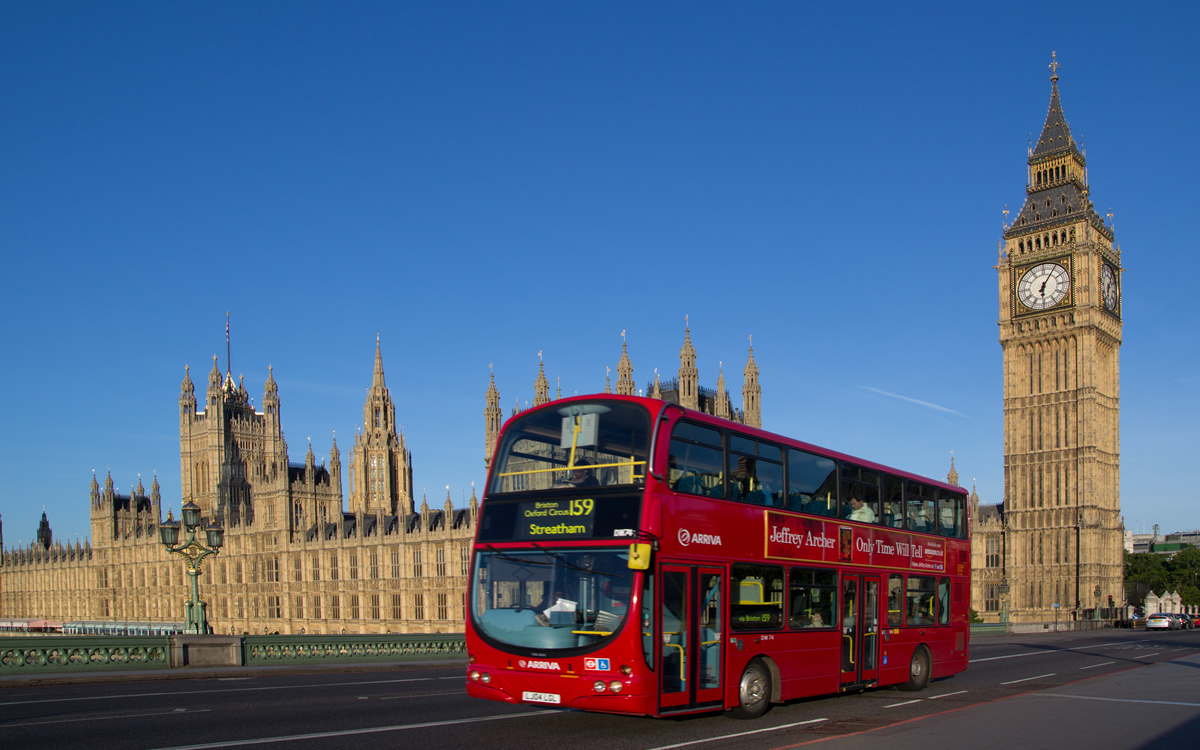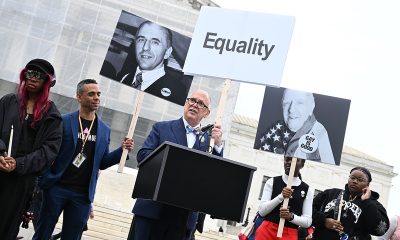World
New Zealand same-sex marriage bill expected to receive final approval
Parliament vote to take place
New Zealand lawmakers on Wednesday are expected to give final approval to a bill that would allow gays and lesbians to marry in the country.
The country’s Parliament on March 13 approved the same-sex marriage measure introduced by lesbian Parliamentarian Louisa Wall by a 77-44 vote margin in the second of three votes on the proposal. Prime Minister John Key is among those who support the measure.
The vote will take place less than a week after French and Uruguayan lawmakers approved same-sex marriage bills in their respective countries. A commission charged with reforming the Irish constitution on Sunday overwhelmingly approved a recommendation that urges the country’s government to extend marriage rights to gays and lesbians.
Jackie Russell-Green of the New Zealand Campaign for Marriage Equality told the Washington Blade last month same-sex marriage supporters “need to be resolute” leading up the measure’s third and final reading.
“There will be no celebration until the bill passes,” she said.
India
India’s ‘pink economy’ could bolster economic growth
LGBTQ purchasing power in country estimated to be $168 billion

The rollback of the U.S. Agency for International Development under the Trump-Vance administration represents a global setback for LGBTQ rights. A report from the Observer Research Foundation, a leading Indian think tank that advises the government on policy, however, highlights a unique opportunity for the country to rely less on overseas funding to promote LGBTQ inclusion and integrate the “pink economy” into its broader economic growth strategy, fostering a more inclusive and self-reliant framework.
The “pink economy,” defined as the purchasing power of the queer community, is valued globally at approximately $3.7 trillion. In India, this market is estimated at $168 billion, but remains largely untapped due to persistent stigma that obstructs economic inclusion for LGBTQ people.
The ORF report notes that, as a result, India’s LGBTQ community has relied heavily on international aid and funding, with Western narratives often shaping perceptions of queer identities.
Despite India’s efforts to advance LGBTQ rights — through recognizing a “third gender” in the 2011 Census, the Supreme Court’s 2018 decision to decriminalize consensual same-sex sexual relations by striking down Section 377, and the passage of the Transgender Persons (Protection of Rights) Act in 2019 — these measures have done little to meaningfully to elevate the social and economic status of the LGBTQ community.
India’s queer community constitutes roughly 18 percent of the global queer population. A 2025 study reveals it receives only 1 percent of global LGBTQ funding, despite heavy reliance on international donors.
The Against All Odds — Advancing Equity for India’s LGBTQIA+ Communities report reveals that, within India, only one of the nation’s top 50 donors explicitly funds queer causes, underscoring a significant gap in domestic philanthropy for the LGBTQIA+ community.
India’s Social Justice and Empowerment Ministry for the 2025-2026 fiscal year allocated $1.07 billion to support education, skilling, healthcare, and rehabilitation for marginalized groups. The ORF report, however, emphasizes this funding falls significantly short for the estimated 140 million-strong queer community, as it narrowly focuses on trans people, thereby limiting its impact on the broader LGBTQ community.
A 2014 World Bank report, the Economic Cost of Homophobia and The Exclusion of LGBT People: A Case Study of India, found that excluding the LGBTQ community from economic participation results in a GDP loss of between .1 and 1.7 percent, translating to an annual economic impact of $1.9 billion to $30.8 billion.
The ORF report underscores that social stigma restricts access to education and hinders opportunities for meaningful employment.
A 2024 report, Fundamental Rights of Work Inclusion for LGBTQ in India, reveals that fewer than 6 percent of trans people are part of the formal workforce, with their presence in the public sector being nearly negligible. It further notes that, for daily survival, many trans people are forced into hostile environments or resort to street begging.
Thailand, with a marriage equality law that took effect in January, is widely recognized for its relative tolerance toward the LGBTQ community, fostering a vibrant queer culture in cities like Bangkok. The country actively promotes itself as a gay-friendly tourism destination, with businesses capitalizing on the “pink economy” through events, nightlife, and tailored travel services. A 2017 report highlighted Thailand as a leading hub for gay-friendly holidays, significantly bolstering its pink economy.
China stands out as a major player in the “pink economy,” valued at an estimated $300 billion annually in 2017, the largest in Asia, fueled by at least 70 million people. Despite government restrictions on queer content, businesses like Blued, a gay social networking app with 54 million users, and Taobao and other e-commerce platforms have tapped into the “pink market,” offering services such as same-sex wedding packages abroad.
Japan has made gradual strides in LGBTQ inclusion with Goldman Sachs, Panasonic, Rakuten and other companies implementing inclusive policies, such as same-sex partner benefits, since 2015. The Japan Business Federation in 2017 issued guidelines to promote LGBTQ-inclusive employment. Tokyo’s rising status as an LGBTQ-friendly city bolsters tourism and consumer markets tied to the “pink economy.” Japan’s tech and tourism sectors remain robust, despite the country’s modest economic growth, with “pink economy” initiatives driving urban economic vitality.
Anish Gawande, the first openly gay national spokesperson for India’s Nationalist Congress Party, told the Washington Blade that excluding the LGBTQ community carries a tangible financial cost. He emphasized India must soon recognize that marginalizing this group not only triggers a brain drain of top talent but also bars hundreds of thousands of highly capable individuals from driving the nation’s economic progress.
“I am a firm believer in a politics of care. If we only want LGBTQ+ inclusion for the sake of economic prosperity, there will never be true inclusion,” said Gawande. “What we must understand is that an embracing of diversity — across caste, class, religion, region, gender, and sexuality — is fundamental to ensuring that we build communities that listen to and learn from each other. By embracing diversity, which has been at the very heart of what it means to be Indian, we do not just prosper economically — but also build more resilient, more equal, and more harmonious societies.”
Kalki Subramaniam, a prominent LGBTQ activist and artist, told the Blade the issue transcends mere economic gain, emphasizing the vibrant spirit and unrecognized potential of LGBTQ people across India.
“We are here, we exist, and our contributions are invaluable. But the government is yet to recognize and fully tap it,” said Subramaniam. “If they are not listening, they will lose out, not just on money, but on the richness we bring to the fabric of India. This is not just an economic report, it is a heartbeat of a community yearning to be seen, to be accepted, and to be allowed to shine for the prosperity of our shared home.”
United Kingdom
Four UK Pride organizations ban political parties from events
Statement notes Supreme Court ruling that excludes trans women from legal definition of woman

The organizers of four of the largest Prides in the U.K. have banned political parties from their events.
A statement that Pride in London, Manchester Pride, Birmingham Pride, and Brighton Pride issued on Thursday specifically notes last month’s U.K. Supreme Court ruling that said the legal definition of a woman is limited to “biological women” and does not include transgender women.
“The recent ruling by the U.K. Supreme Court to exclude trans women from the definition of the term ‘woman’ underscores the urgent need for immediate action,” reads the statement. “In this moment, we choose to stand firmer, louder, and prouder in demanding change that protects and uplifts trans lives.”
British Prime Minister Keir Starmer after the ruling said “a woman is a biological woman” under the country’s 2010 Equality Act that bans discrimination based on sexual orientation and gender identity.
The Pride organizations in their statement did not specifically reference Starmer and his comments. They did, however, announce they are “collectively suspending political party participation in our Pride events.”
“Know that this is not a symbolic gesture,” reads the statement. “It is a direct call for accountability and a refusal to platform those who have not protected our rights.”
The groups also made the following demands:
• Full and enforceable protections under the Equality Act
• Timely and dignified access to NHS (National Health Service) gender-affirming healthcare
• A reformed, accessible Gender Recognition Certificate process
• Sustainable funding for trans-led services and support organizations across the U.K.
“This is the minimum,” said the groups. “Anything less is not allyship, it is abandonment.”
“Our main parties have let us down and need to re-earn their place in our marches,” said Peter Tatchell, a long-time LGBTQ activist from the U.K. who is the director of the Peter Tatchell Foundation, in a newsletter that his organization publishes. “Pride is a protest.”
European Union
EU countries ‘alarmed’ over Hungary’s worsening anti-LGBTQ crackdown
Budapest authorities have banned June 1 march

The governments of 20 European Union countries on Tuesday said they are “alarmed” over Hungary’s worsening anti-LGBTQ crackdown.
Hungarian lawmakers in March passed a bill that bans Pride events and allow authorities to use facial recognition technology to identify those who participate in them. MPs last month amended the Hungarian constitution to ban public LGBTQ events.
The Hungarian Helsinki Committee on Tuesday said police in Budapest, the Hungarian capital, have banned an LGBTQ rights march that was scheduled to have taken place on June 1. The Budapest-based human rights NGO in a press release said authorities cited the law that bans Pride events and other demonstrations “displaying homosexuality.”
Budapest Pride is scheduled to take place on June 28. The Hungarian Helsinki Committee and other groups, including the Háttér Society, a Hungarian LGBTQ rights organization, said they will challenge the ban.
“We are deeply concerned by recent legislative and constitutional amendments infringing on the fundamental rights of LGBTIQ+ persons which were adopted by the Hungarian parliament on March 18 and April 14, 2025, following other anti-LGBTIQ+ legislation already introduced in previous years,” reads a declaration that the Austrian, Belgian, Cypriot, Czech, Danish, Estonian, Finnish, French, German, Greek, Icelandic, Latvian, Lithuanian, Luxembourgish, Maltese, Dutch, Portuguese, Slovenian, Spanish, and Swedish governments issued.
“Under the pretext of child protection, these legislative amendments allow fines to be imposed on participants and organizers of events, such as the annual Pride celebrations,” it adds. “The amendments also allow for facial recognition software to be used at such events, and for banning such events. We are concerned by the implications of these measures on freedom of expression, the right to peaceful assembly, and the right to privacy.”
The governments stress they are “highly alarmed by these developments which run contrary to the fundamental values of human dignity, freedom, equality and respect for human rights, as laid down in Article 2 of the Treaty on European Union.”
“Respecting and protecting the human rights and fundamental freedoms of all people, including LGBTIQ+ persons, is inherent in being part of the European family. This is our responsibility and shared commitment of the member states and the European institutions,” says the declaration.
“We therefore call upon Hungary to revise these measures, to ensure the human rights and fundamental freedoms of all its citizens are respected and protected, thus complying with its international obligations,” it adds.
-

 Arts & Entertainment2 days ago
Arts & Entertainment2 days agoShakira cancels WorldPride concert
-

 District of Columbia4 days ago
District of Columbia4 days agoWorldPride hotel bookings hint at disappointing turnout
-

 World Pride 20254 days ago
World Pride 20254 days agoKristine W on WorldPride, drag queens, and being ‘Love Personified’
-

 Movies3 days ago
Movies3 days ago‘Pee-wee’ spills the tea in outstanding new documentary












